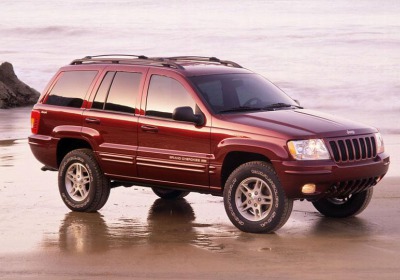Chrysler recalls Jeeps for fire risk
Tue, 18 Jun 2013
Chrysler has decided to recall 2.7 million 1993 to 2004 Jeep Grand Cherokee and 2002 to 2007 Liberty models for a potential risk relating to the fuel tank placement between the rear bumper and rear axle. The recall is initiated 15 days after the automaker originally denied a request following a National Highway Traffic Safety Administration investigation.
On June 4, one day after NHTSA's finding, Chrysler rejected the request in a media statement, stating the NHTSA's initial conclusions are based on “incomplete analysis of the underlying data.” Chrysler said the impacted models met or exceeded all applicable requirements of the Federal Motor Vehicle Safety Standards, including the ones pertaining to fuel system integrity.
Chrysler's denial of the request prompted concern from Jeep owners, including Jenelle Embrey, who started a petition at Change.org that asked Chrysler to take action.
Embrey was involved in an accident with a Jeep Grand Cherokee and a semi truck on Oct. 5, where she says she saw a car that was rear ended go up in flames with people trapped inside. (You can read the tale here at Change.org but be warned, the story is graphic.)
In a statement Chrysler said Embrey's case featured a crash 23 times more powerful than the required performance threshold, which was doubled in 2008.
On Monday, before the recall was issued, Embrey took her mother's 2004 Jeep Grand Cherokee to a dealership in Fairfax, Va. to symbolically ask the dealer to initiate a recall. She brought her signatures, along with pictures of people injured by the Jeeps in question. Her campaign at the petition site had more than 125,000 signatures.
Embrey was turned away by the dealer, who basically said at that time if Chrysler doesn't issue a recall there is nothing that it can do.
Chrysler said today that they will inspect vehicles involved in the recall and, if necessary, provide an upgrade to the rear structure of the vehicle to better manage crash forces in low-speed impacts.
"Chrysler Group's analysis of the data confirms that these vehicles are not defective and are among the safest in the peer group," Chrysler said in the statement. "Nonetheless, Chrysler Group recognizes that this matter has raised concerns for its customer and wants to take further steps, in coordination with NHTSA, to provide additional measures to supplement the safety of its vehicles."
NHTSA head David Strickland told the Detroit News last Thursday the organization “felt very strongly that the process that we undertook and the findings that we made [warranted] the decision to issue a recall request. We do not take that very lightly.”
NHTSA didn't tell owners to stop driving their cars, something it has done in the past. “They can make their own risk assessment and their own choices,” Strickland said.
By Jake Lingeman



